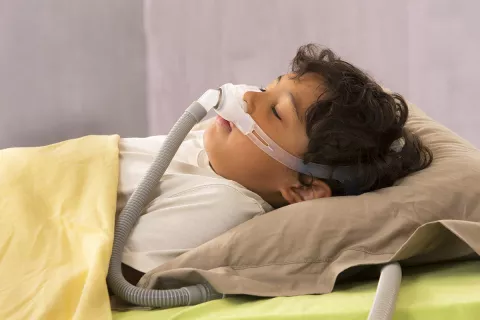According to an observational study, poor sleep quality and stability may indicate memory difficulties in children with sleep-disordered breathing. Sleep quality markers may also serve as early indicators of cognitive vulnerability in this group.
This study included 152 children aged 5–12 who visited the Sleep Center of Beijing Children's Hospital between June 2022 and March 2023 with suspected sleep-disordered breathing. All children underwent polysomnography and cardiopulmonary coupling (CPC) monitoring based on photoplethysmogram and memory testing before and after sleep. Memory tests included immediate and delayed recognition and recall. In CPC, high-frequency coupling (HFC) indicated stable sleep. A sleep quality index (SQI) was calculated based on HFC, sleep duration, and sleep fragmentation. Cyclic variation in heart rate was used as the sleep apnea indicator (SAI). Children were grouped based on HFC levels: low (<60), moderate (60–80), and high (>80).
HFC percentage was negatively correlated with apnea-hypopnea index (AHI) and obstructive AHI (OAHI) (r = –0.32, p < 0.01; r = –0.31, p < 0.01). In contrast, low-frequency coupling (LFC) was positively correlated with AHI and OAHI (r = 0.29, p < 0.01; r = 0.28, p < 0.01). Higher HFC and SQI were positively associated with delayed recall test scores (r = 0.19, p < 0.05) and recognition consolidation rate (r = 0.23, p < 0.05). LFC showed a negative correlation with delayed recall (r = –0.19, p < 0.05), delayed recognition (r = –0.15, p < 0.05), and recognition consolidation rate (r = –0.21, p < 0.01). SAI was also negatively associated with the recognition consolidation rate (r = –0.17, p < 0.05).
The findings indicate poor sleep stability is associated with reduced memory performance in children with suspected sleep apnea. Sleep quality metrics like CPC-derived HFC and SQI may serve as early markers of cognitive risk in this population.

